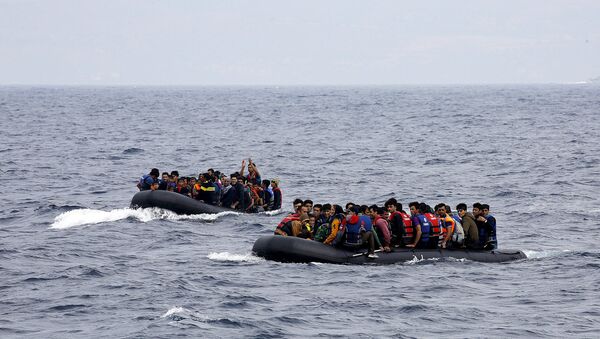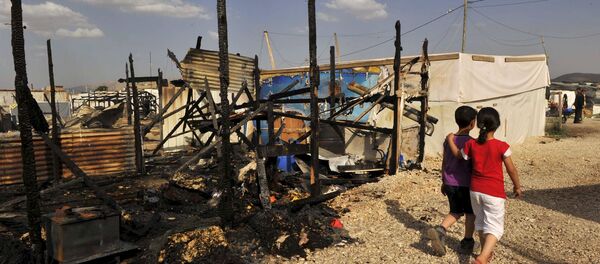In addition, Japan is also ready to allocate 750 million dollars to stabilize the situation in the Middle East and Africa.
The migrant crisis has become a major challenge for the world, and Japan is not going to deny any assistance but it will not accept refugees. This was recently stated by Prime Minister of Japan Shinzo Abe during the UN meeting.
However, Japan puts barriers to migrants not only from the Middle East but also from the countries of the Pacific region.
Japanese newspaper Asahi Shimbun reported that the UN High Commissioner for Refugees from 1991 to 2000 Sadako Ogata said that “at the time when (Ogata was the commissioner) it was very difficult to persuade Japan to accept refugees. Unfortunately, since then nothing has changed.”
“Acceptance of refugees is an integral part of active pacifism. It is essential that aid reaches each person,” Ogata added. She criticized the Japanese government for the fact that out of the 60 Syrians who applied for refugee status only 3 people were granted. “Is the Japanese Government not aware of the situation in Syria?” Sadako Ogata asked.
The president of the ‘Russian Club’ in Tokyo, Michael Mozhechkov, told Sputnik, “There was a moment in the history of Japan when Iranians came. That was 20 years ago during the Iran-Iraq war. After operation ‘Desert Storm’ the Japanese allowed Iranians into the country who then worked in construction. But over time, they spread to the country and many have become involved in this type of illegal business such as prostitution, drugs and so on.”
Mozhechkov also said that Japanese society is aging, so it needs nursing. The work is hard and low-paid. He said that there was a program which dealt with women from the Philippines and Malaysia. However, this program was malfunctioned, as these women took lessons to learn Japanese but almost none of them passed the Japanese language exam and most of them went back. “Looking at these examples with the Iranian workers and nurses from Asian countries, I cannot understand why the Japanese government does not really want to increase the influx of foreigners to Japan.”
The Japanese are highly educated; hence, Japan is facing a deficit in its work force which requires not just creativity and skill but also physical strength. Professor Takuseky Vasiliy Molodykov said that, “Japan, has quite a tough immigration legislation as it is a very attractive country to earn money. People from America, Australia and New Zealand are also interested in coming to Japan but they come here to earn money and go home because to stay they need to know the Japanese language.
He also noted that Japan has expensive housing and small apartments. There is also no such shortage of labor in the country hence, the inflow of foreign workers in Japan is not seen as a welcome move.



